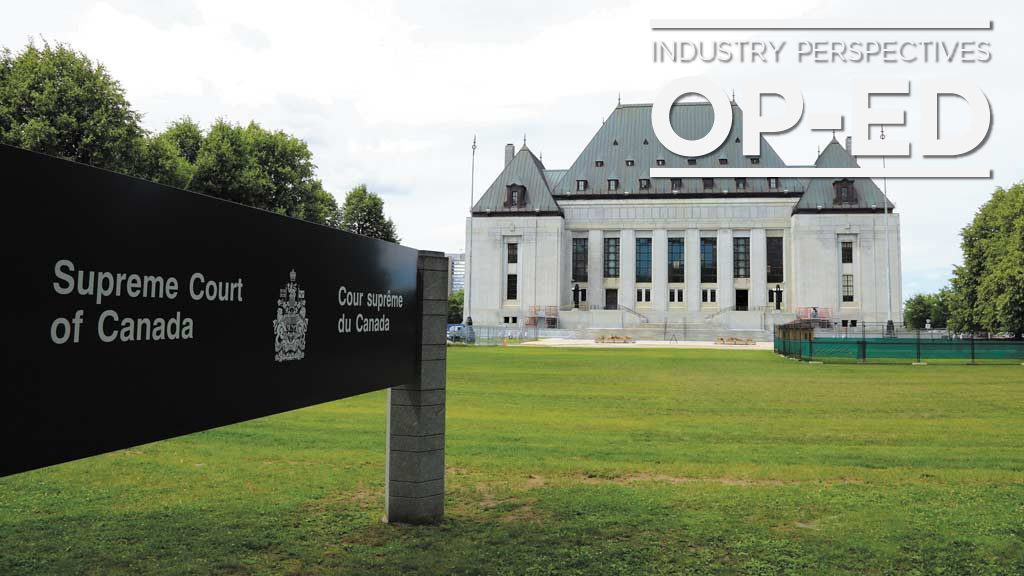“Ensuring payment of contractors and subcontractors and encouraging liquidity in the flow of funds to them are both significant preoccupations in the construction industry.”
This statement from the Supreme Court of Canada continues to resonate as much now as it did in our prior two articles, which can be found here and here.
In those articles, we addressed the use of lien bonds as security to vacate claims for lien on Crown lands. Recently, the Ontario Superior Court had an opportunity to consider a similar but distinct issue, namely the use of letters of credit as security to vacate claims for lien in Ontario.
Construction liens act as a charge on land. This can impede cashflow on a project, and can create ancillary issues for an owner of a project. The Ontario Construction Act provides a mechanism for liens to be vacated by transferring the charge on the land to an alternative security, which is then posted with the Accountant of the Superior Court.
As a result, the land becomes unencumbered, cashflow is restored and the lien holder retains an enforceable interest against the security. Although there is some flexibility in the act on the interpretation of “security,” the two most common forms of security used in the construction industry are lien bonds and letters of credit.
In TruGrp v Karmina, 2024 ONSC 2165, the Court addressed whether a letter of credit was adequate security to vacate a claim for lien. TruGrp, a lien claimant, registered two claims for lien, which were vacated by the owner, Kamina, using a letter of credit. TruGrp brought a motion to set aside the order vacating the claims for lien, contending the renewal provisions commonly found in letters of credit (including the one at issue) rendered them ineffective as security.
Ultimately, the Court adjourned the motion, and in doing so, created uncertainty with respect to the use of letters of credit as security under the act. This uncertainty will remain until the Court issues its final decision, which is expected later this year.
TruGrp’s challenge to the letter of credit
Unlike lien bonds, for which a specific form is prescribed under the act, letters of credit do not have a prescribed form. However, a commonly used form of letter of credit has emerged and has been previously endorsed by the Court without issue.
Notwithstanding this endorsement, TruGrp still challenged this form of letter of credit based on specific language that permitted the issuing bank to decline renewal of the letter of credit. The bank was allowed to do so if the accountant was given 30 days’ notice and the bank issued a bank draft for the amount of the letter of credit less any payments already made under it to replace the letter of credit.
Based on communication with the accountant, which confirmed it would not accept a replacement bank draft sent by the bank without a Court order, and given the language of the letter of credit, TruGrp submitted that:
- it was possible for the letter of credit to not be renewed by the bank, and
- for the accountant to not accept a bank draft as contemplated by the letter of credit, resulting in no enforceable security being held in court for TruGrp’s lien.
According to TruGrp, this created a potential gap in security, and as a result, TruGrp alleged the letter of credit was not adequate.
Reasoning of the Court and adjournment of the motion
Karmina, which posted the letter of credit to vacate the lien, raised numerous procedural arguments against TruGrp’s motion. All of the procedural arguments were rejected, leaving the substantive issue for the Court’s determination. The Court acknowledged the lack of caselaw interpreting the renewal provisions of the letter of credit, and therefore that this was a novel issue.
TruGrp argued the letter of credit created an uncertain form of security, contrary to the scheme of the act, as set out above.
Further, it argued the requirement in the letter of credit for the accountant to accept a bank draft created positive obligations on the accountant, contrary to the accountant’s statutory role, which was limited to being a custodian of the security.
Conversely, Karmina submitted the Court has been approving letters of credit with similar provisions for decades without issue, and the role of the accountant as a custodian should not be interpretated to be a purely passive role as argued by TruGrp.
Ultimately, the Court adjourned the motion. The Court held the decision could have a significant impact on the accountant, including the scope of its responsibilities as a custodian, as well as on the issuing bank, which could have new obligations with respect to the letter of credit.
As a result, the Court wanted to provide both the accountant and the bank with an opportunity to make submissions before rendering a decision.
The Court held if either the accountant or the bank intended to take a position, it would be given an opportunity to do so. If neither elected to take a position, the Court would issue its ruling based on the submissions already made.
Key takeaways
Given the adjournment of the motion, there is uncertainty as to whether letters of credit with similar renewal provisions will be acceptable security to vacate a lien. If they are found to be unacceptable, there will be far reaching implications for the construction industry, including on outstanding claims for lien where such letters of credit have already been posted.
As set out in our prior articles, lien bonds have become the de facto security posted as security to vacate claims for lien, and pending the outcome of this decision, it is advisable to consider using lien bonds in situations where letters of credit would otherwise have been used.
We will update this article once a final decision is reached by the Court, which we expect will occur by the end of this year.
Richard Yehia, James MacLellan and Evan Ivkovic are lawyers with Borden Ladner Gervais. Send Industry Perspectives Op-Ed comments and column ideas to editor@dailycommercialnews.com.







Recent Comments